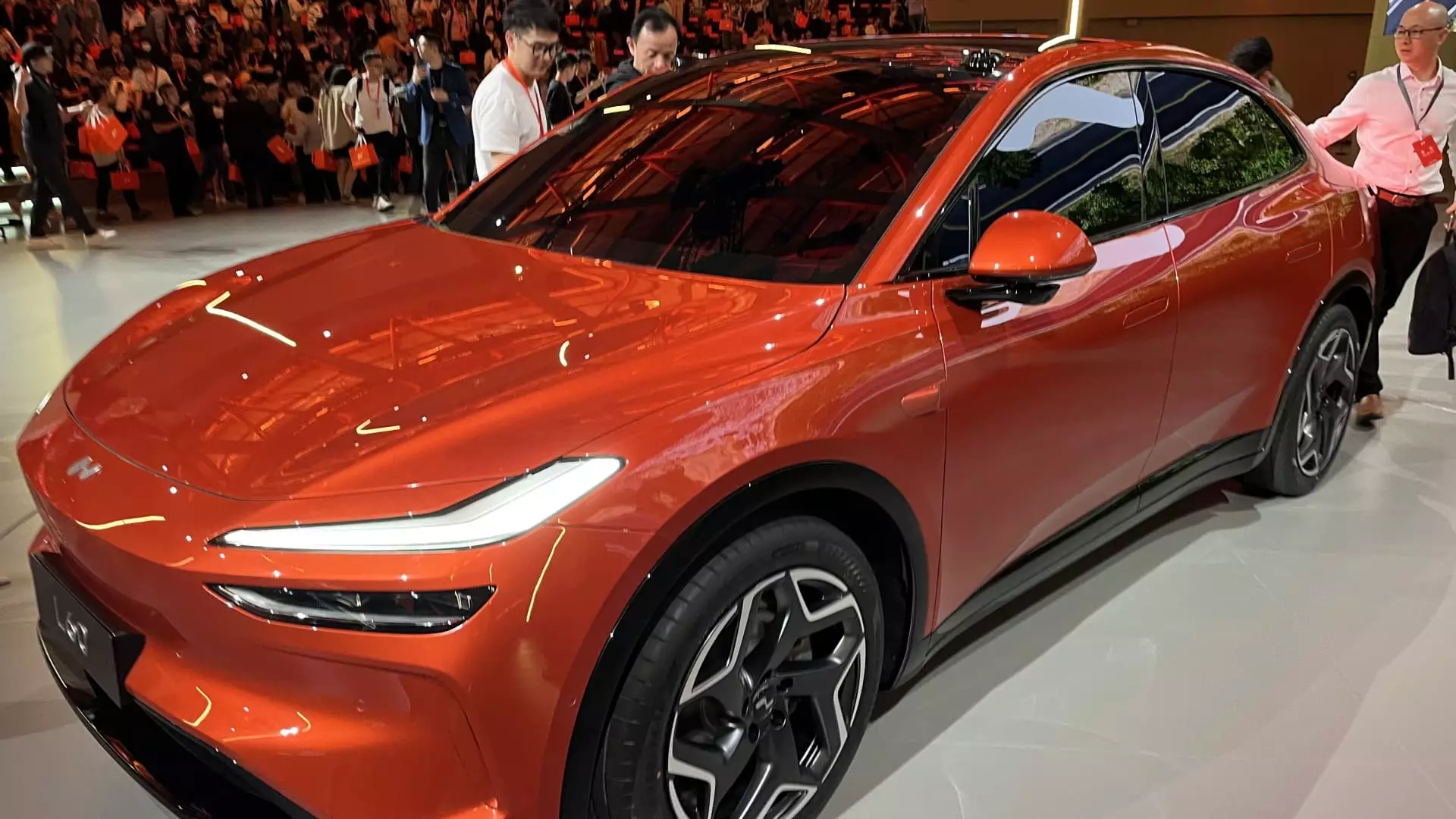In the fiercely competitive landscape of electric vehicles (EVs), price points and brand perception play crucial roles in consumer decisions. Onvo, a new brand launched by the established electric car manufacturer Nio, is making waves with its announcement of the L60 SUV, which marks a significant strategic move aimed at undermining Tesla’s dominance in China. With an enticing starting price of 149,900 yuan (approximately $21,210), the Onvo L60 offers a substantial discount, especially when battery services can be procured through a relatively low monthly subscription model.
In a market increasingly governed by cost-effectiveness, Onvo’s pricing strategy suggests a refreshing focus on affordability while capturing a broader consumer demographic eager for high-quality EVs without the premium price tag.
Disruptive Pricing and Competitive Advantages
Nio’s decision to launch Onvo at just 149,900 yuan primarily hinges on two compelling strategies: affordability and innovative battery rental options. The L60’s low entry price, especially in contrast to Tesla’s Model Y—which starts at 249,900 yuan—positions Onvo as a financially viable option for many consumers who are perhaps hesitant about making the considerable investment that often comes with EV ownership. This pricing strategy echoes a broader trend within the Chinese EV market: aggressive pricing that seeks to attract buyers turned off by more expensive alternatives.
One aspect that sets the Onvo L60 apart is the opportunity for consumers to subscribe to a battery service, which essentially allows them to “rent” the battery rather than purchase it outright. This not only decreases the upfront cost of owning the vehicle but also allows for a flexible ownership model that can appeal to younger demographics or individuals uncertain about committing to a long-term investment. Nio’s foresight to implement this model is commendable and might well propel Onvo to achieve significant market penetration.
After the unveiling of the Onvo L60, Nio’s stock experienced a notable uptick of over 3.5% during U.S. trading hours, indicating investor confidence in the brand’s direction. However, while Onvo’s entry into the market has sparked enthusiasm, it also raises pertinent questions about how Nio intends to manage brand identity amid the proliferation of sub-brands like Onvo and even lower-priced offerings, such as the forthcoming Firefly brand.
CEO William Li’s optimistic projections for Onvo suggest the brand aims to reach an impressive 10,000 monthly vehicle deliveries by December, potentially doubling that figure the following year. This ambitious target hinges not only on local demand but also on the brand’s growth in international markets, including planned entries into regions like the United Arab Emirates. As competition from brands such as Xpeng and Zeekr continues to heat up, Nio’s ability to solidify Onvo as a household name hinges on strategic marketing and supply chain management.
Challenges Ahead in the European Market
Despite its aggressive domestic and international growth strategies, Nio faces considerable obstacles, particularly in Europe, where increased tariffs on Chinese EVs loom on the horizon. The European Union’s ongoing investigation into the practices of Chinese automakers, including the use of state subsidies, could impose hefty tariffs—such as the 20.8% duty that would affect Nio vehicles. Such challenges indicate that while Onvo may succeed in establishing a foothold in China, European expansion may need to navigate significant regulatory hurdles.
Nio’s calculated decision to focus on established markets while cautiously assessing European operations demonstrates its awareness of these complexities. By prioritizing existing markets and ensuring that brand positioning is carefully maintained, Nio can retain consumer engagement even amid a shifting regulatory landscape.
As Onvo prepares to launch the L60, its influence on the electric vehicle sector in China could be transformative. With a clear focus on affordability and flexibility—the two forces expected to drive consumer decisions—Onvo’s future success will likely inspire other manufacturers to reconsider their pricing strategies and product offerings.
In essence, Onvo embodies a shift towards a more diversified electric vehicle market, where brands can cater to varying consumer needs without sacrificing quality. As Nio sets its sights on expanding Onvo and other brands internationally, they will become a key player in reshaping not just the Chinese EV landscape, but also the global perception of affordable electric mobility.

